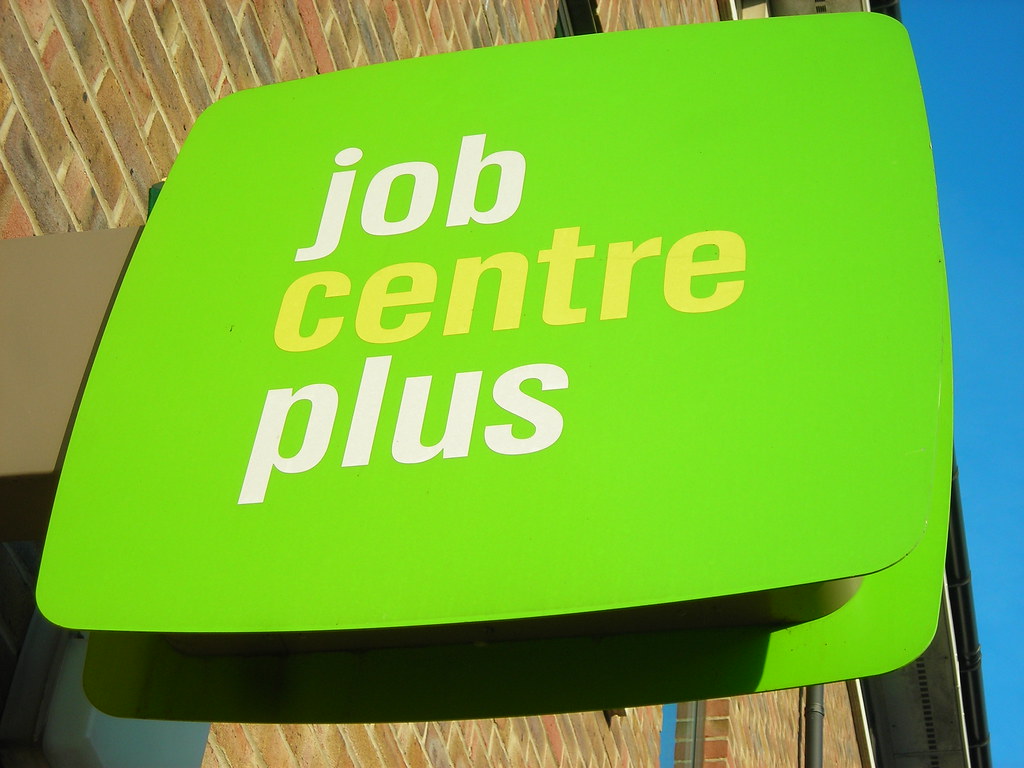After 14 years of Conservative mismanagement Labour have successfully achieved a landslide victory in this years General Election.
“We did it!”, shouted Keir Starmer after it was revealed in the early hours of this morning that he will become the UK’s next Prime Minister, “Change begins now.”
Although the success was far from unexpected, the 2024 election has shattered records. Labour has won a landslide victory, reversing its heavy defeat experiences less than five years ago. The final majority will come close to Tony Blair’s achievement of 1997, surpassing the landslides achieved by Clement Attlee in 1945 and Margaret Thatcher in 1983. Overall, Labour secured more than 635 out of 650 seats declared and will now run the country with a majority of at least 100.
Although this achievement can be described as nothing short of exceptional, Labour now has arguably one of the biggest jobs in trying to fix this country – especially in regard to addressing the current housing crisis. With this in mind, we analyse the reaction to Labour’s victory.
This story will continue to be updated throughout the day.
Parest Raja, CEO of Market Financial Solutions: ‘The accepted logic is that elections bring uncertainty and are therefore bad news for the property market. But there have been some important differences this time around: Rishi Sunak called for the vote to take place a lot earlier than expected, and the result (a Labour victory) has seemed highly likely from the off. As a result, there has been less uncertainty than there could have been, and now the ballots have closed, we should see a prompt return to more stable, ‘business as usual’ conditions.
‘There are enough signs to suggest the market is ready for a post-election uptick in activity. The number of homes coming onto the market in the first half of 2024 is 22.9% higher than last year, while economists are still predicting that the Bank of England will cut the base rate twice before the end of the year, with the first potentially coming on 1st August.
‘But, despite these reasons for optimism, there is clearly no room for complacency. Political and economic turbulence remains, so lenders have to focus on supporting brokers and borrowers as best they can. Optionality and flexibility will be key in the second half of this year, and lenders have to commit to providing borrowers with the financial products they need to both benefit from any opportunities that a potentially more stable climate could provide.’
Jatin Ondhia, CEO of Shojin: ‘Labour’s ascendancy to Downing Street marks an important moment for the property sector. Several ambitious pledges regarding housebuilding and investment were made on the campaign trail, but now’s the time for Starmer and his party to back up their words with actions. Ensuring the UK continues to remain a global hub for investment needs to be a key priority, and the real estate sector will remain a crucial market for attracting that inbound investment.
‘Labour has work to do: interest rates remain high, the cost-of-living crisis has left a toll on people’s spending power, and economic growth needs to turbo-charging. However, following a rather tumultuous end to the Conservatives’ 14 years in power, the UK now has a chance to reposition itself, building strong international partnerships and attracting global investments. Labour’s plans to reform the planning system and pave the way for affordable house building present significant opportunities for greater investment into property development, but the effective implementation of their promised reforms will be key.’
Nicholas Harris, Chief Executive at Stonewater: ‘This will be the first Labour government since Stonewater’s formation in 2015. While their manifesto demonstrated a cautious path, I am looking forward to seeing whether the new government can deliver on pledges to build more social and affordable homes.
‘We know this will take a concerted effort between government, local authorities and providers across the sector and we look forward to working towards our vision for everyone having the opportunity to have a place that they can call home.
‘For customers, I hope that Labour’s pledge to ‘review’ universal credit sees a more supportive approach, ensuring that those who most need support get the help they need, and ultimately that more customers can thrive. “Having welcomed eight Housing Ministers since the last election in 2019, I am hopeful that the appointed minister will be in place for the long term and will be able and willing to make a real difference for our sector.
‘We hope that the government will be focused on delivery, consistency and ambition, and we look forward to working with the MPs in the areas that we operate to help them tackle the issues being faced and deliver support for customers.’
Douglas Grant, Group CEO of Manx Financial Group: ‘While widely anticipated, Labour’s victory brings uncertainty, making it crucial for SMEs to reassess their lending arrangements to strengthen financial stability and operational resilience. This preparation is vital in light of potential economic and policy changes post-election. Recent research by Manx Financial Group indicates significant financial challenges for UK SMEs, with nearly a third having to halt or pause business operations due to insufficient finance. Although this figure has improved from 40% in 2023, 10% of SMEs seeking external finance were unsuccessful. These constraints, alongside a volatile environment marked by conflicts, ongoing global elections, a tight labour market, and cost-of-living issues, hinder SME prospects and national economic growth.
‘The current government has made strides in SME financial support, but more proactive measures are necessary for the Labour government. Advocacy groups urge both current and future governments, along with the Treasury, to continue short-term loan schemes and establish a permanent, government-backed loan scheme. Such a scheme should target resilient sectors and include both traditional and non-traditional lenders, essential for economic recovery and support. As SMEs are crucial to the economy, driving innovation, employment, and local development, it is imperative to equip them with resources to thrive. The evolving SME lending landscape necessitates the next UK government to focus on the following areas:
- Long-term government-backed financial support: Establish permanent sector-specific financial support, ensuring stability and predictability for SMEs.
- Technology as a job enabler: Invest in digital skills training, infrastructure development, and technology adoption initiatives to enhance productivity and job creation.
- Infrastructure development: Provide consistent funding and execution of infrastructure projects to stimulate local economies and support SME growth.
- Supply chain and infrastructure optimisation: Analyse and improve supply chains and infrastructure to mitigate risks and enhance efficiency.
- Incentivise investment: Introduce tax breaks and investment schemes to attract capital to UK SMEs, fostering growth and innovation.’
Mark Chick, Director of ALEP: ‘So now that we know the size of the Labour majority it seems a fairly safe bet that the next five years will see a more vigorous programme of reform in the residential leasehold sector.
‘During the next five years we are likely to see the acceleration of commonhold and possibly legislation to end or put a sunset date on leasehold for new properties.
‘It will be interesting to see what Labour chooses to do with the Commonhold project and I expect we will now find out what other drafting has been done by DLUHC in relation to the law commission’s original reports and recommendations.
‘In addition we can presumably expect the current reforms in the Leasehold and Freehold Reform Act 2024 to be brought into effect and the question now turns to the timing of these and secondary legislation.’
Daniel Austin, CEO and Co-founder of ASK Partners: ‘Housing stands as a pivotal issue for the Labour government, given its correlation with economic stability. Recent upticks in house prices and mortgage approvals hint at recovery, yet the persistent housing shortage threatens prolonged recession. The UK faces a crisis of affordability due to insufficient homes for rent and sale, negatively impacting GDP. Decades of social strain persist with little resolution in sight. We urge the implementation of a radical yet credible long-term plan to assuage market concerns.
‘A previously proposed target of 300,000 homes annually echoes longstanding government aspirations unmet since 2004. France’s surpassing construction efforts underscore the urgency, with Capital Economics estimating a need for 385,000 new homes yearly. Four primary factors underpin this crisis: over-reliance on major housebuilders, politicised planning discouraging development, net loss of social housing, and post-Brexit labour shortages.
‘Addressing these roots is imperative to alleviate the affordability crisis. Reinvigorating SME housebuilders is pivotal. Incentives should facilitate access to opportunities, including allocating small land plots for development and streamlining planning permissions for brownfield sites. Boosting skilled labour domestically and reforming the planning system are equally crucial. Independent decision-making and private sector assistance can expedite approvals and reduce costs. Prioritising social housing and incentivising brownfield developments are essential steps toward sustainable growth. Lenders must offer flexible financing to smaller developers.’
Colin Brown, Head of Planning & Development at Carter Jonas: ‘With the election of a new Labour government, there are new opportunities ahead for planning and the wider housebuilding industry – policies to reform the planning system, increase the rate of housebuilding and utilise brownfield and selected Green Belt sites.
‘The extent to which the new government can succeed where the last one frankly struggled will depend on many factors. Building ‘the right homes in the right places’ is a laudable aim but not necessarily as straightforward as it sounds.
‘The new administration appears committed to delivering increased housing numbers through the creation of several new towns. At one level, this is something one should welcome as part of a balanced overall development strategy, but it will be important not to place all eggs in one basket, given the long lead-in times for delivery of new communities.
‘Labour has also made it clear that a more strategic approach will be taken to the selective release of the Green Belt. In our view, this is the correct approach to take, especially having regard to the fact that many Green Belt locations are those where housing affordability is at or beyond crisis levels. But it remains to be seen exactly how land might be categorised as ‘grey belt’ and we suspect there will be rather more nuance than simply distinguishing beyond what is ‘green’ or ‘grey’.
‘Labour has pledged to introduce effective new mechanisms for cross-boundary strategic planning, requiring all Combined and Mayoral Authorities to plan strategically for housing growth in their areas. While we welcome this, it remains to be seen if cross-boundary strategic planning becomes an advent for informal or more formal regional spatial strategies. In our view, this is precisely what is needed, and combined with mandatory housing targets, development strategies can be set at a city-regional level. This would bring many benefits and added certainty to the development industry, allowing more focus on the desirable co-location of housing and jobs.’
Oli Sherlock, Managing Director of Insurance at Goodlord: ‘The new government has a hell of a job on its hands. Whilst their attention will be pulled in many directions, housing policy deserves to be high on the agenda. We’ve had over a decade of stagnation on housing – now is the time for action.
‘Firstly, we need a credible, rapidly implemented plan for house building. The lack of new private and social homes being built is at the very crux of our housing crisis. House building doesn’t happen overnight, meaning we have no time to waste if we want current pressures to abate within a reasonable timeline.
‘Alongside this, the new government must give the market clarity on what’s happening with Renters Reform. If similar legislation to the previous Bill is set to go through, we need clear information on details and timelines. The election-induced delay is also an opportunity to ensure concerns around Section 21 and court backlogs are effectively addressed, before legislation hits the statute books.
‘Lastly, we need consistency of leadership. This isn’t Premiership football, we can’t afford to have another merry-go-round of Housing Ministers – the sector is far too fragile. Long-term planning, consistent leadership, and clarity over details is what the market is calling out for as we enter this new chapter.’
Lauren Hughes, Head of Customer Success at Vouch: ‘Housing should be at the heart of the new Government’s agenda. So many other areas of public policy – health, education, productivity, growth, immigration – are made far more challenging by our current housing crisis. Fix housing and vast benefits are unlocked for the nation.’
‘The UK needs more private and social housing built as soon as possible, alongside incentives to boost the rental market, clearer rules to support tenants and landlords, and far more clarity and consistency over what the future looks like. It’s a big challenge, but we can’t afford to kick the housing can down the road any longer.’
Max Camplin from Cavendish said: ‘Planning reform will be a central component of Labour’s first tranche of legislation – with a first draft of revised NPPF expected by the end of this month. We anticipate London-style housing powers being extended to the Metro Mayors, as set out in the Gordon Brown-led review of devolution, enabling them to adopt a holistic approach to addressing their areas’ housing needs.
‘The specifics of the new planning regime are not yet clear, but it must prioritise speed and empower councils to swiftly approve policy-compliant developments. This streamlined process is crucial for meeting the urgent housing demands and supporting Labour’s ambitious housing targets.
‘They need to get this right if they’re going to have any chance of delivering the New Towns they’ve promised. They will need to be bold and risk turning voters in the chosen areas against them by effectively taking the decision out of the hands of local councils. Will they do it when they’ll have an eye on the next General Election and all the local elections before that? Only time will tell.’
James Bird from Cavendish said: ‘
Labour should be a more natural ally to the social housing sector, with the relationship having been largely rebuilt following the damage caused by the Voluntary Right to Buy.
‘Polling conducted by Cavendish with YouGov in 2023 indicated that Labour MPs would prioritise affordable housing in their constituencies, with housing association homes ranked second, just 1% behind council housing, with affordable home ownership coming in third.
‘Furthermore, Labour MPs demonstrate a stronger understanding of the funding challenges faced by housing associations. According to recent Cavendish polling, the lack of available funding was the third most cited obstacle for housing associations when delivering new homes, behind only the planning system and local objections.
‘Despite this understanding, Labour has been vague on its approach to future funding for affordable housing, and the implications of reforming Section 106 following the Party’s decision to scrap the Infrastructure Levy. Therefore, the social housing sector will need to make a strong case for long-term and enhanced funding early in the new Parliament.
‘Importantly, Labour is highly ambitious on housing and delivery. The sector’s countercyclical nature positions it well to support Labour’s housing targets if provided with the right support. This is especially relevant to Labour’s new towns plan, which is not driven by market forces and can form the foundation of this development.’
Images: Shutterstock, Nick Kane, Aldric RIVAT and C Dustin
More on the General Election:
Londoners distrust in government suggests devolution could be the future

















Leave a Reply